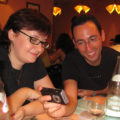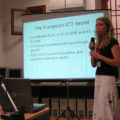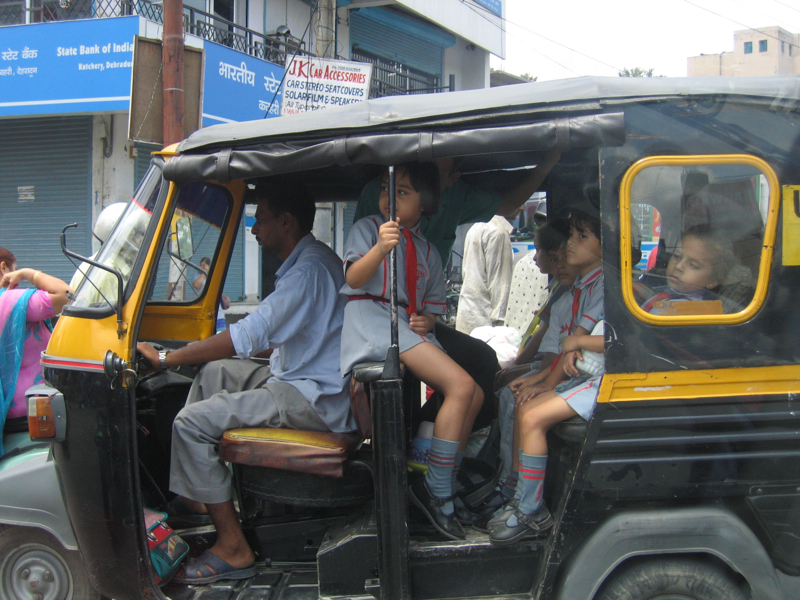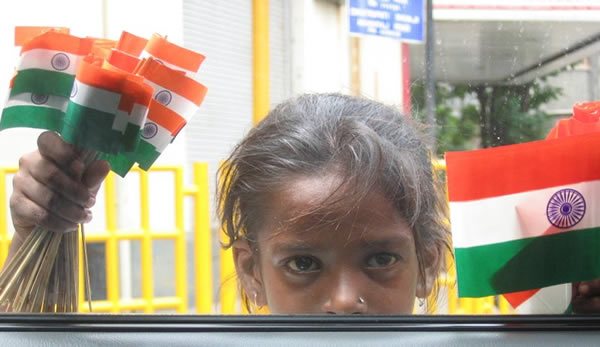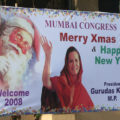Woodstock School was founded in 1854, for the daughters of American Protestant missionaries and of British civil and military personnel in India. Like most British and American schools of its time, it was founded on a strongly Christian ethic and tradition, aiming to instill Christian values and knowledge in its pupils. Woodstock girls were trained to become good wives and mothers, teachers, and missionaries. Given the context and the times, no one thought this objectionable.
The school has always been Christian, but it also has a long history of welcoming children of every race and creed, a tradition which has been vigorously defended by some of its most influential administrators.
In my day (1977-81), Woodstock had just begun a fundamental shift, still not entirely played out today, from “Christian” to “International Christian.” This was the solution determined by Bob Alter (principal, and himself a Woodstock grad, missionary, and a Presbyterian minister) to the rapid decline in the numbers of missionaries in India. Woodstock’s “natural” student body was disappearing, and, for the school to survive, new types of students had to be recruited. My own class of ’81 was 1/3 North American (mostly “mish kids” – missionaries’ childen), 1/3 Indian, and 1/3 “other.”
The staff, however, were still primarily mission-supported. Woodstock salaries were so miserable that, for an American, British, New Zealand, etc. family to be able to come, they needed other funding. Various missions paid travel and moving expenses, and sometimes topped up salaries. A later innovation was for money to be put into a fund back home against the family’s return, so that they’d have some hope of being able to afford college for their own children in their native countries.
To come to Woodstock to teach was therefore a huge commitment and, indeed, leap of faith. A few made the leap because they wanted to “convert the heathen,” but most, while they actively sought a Christian and/or international environment, were primarily interested in the teaching. They were highly motivated and effective teachers (they had to be), and it’s a rare alumnus who does not remember with affection and gratitude at least one special teacher. The staff, in turn, seem to feel amply rewarded: many have said that Woodstock students were the best they ever taught (and not just academically).
Still, there was a mismatch between the almost entirely Christian staff and the not-so-Christian-anymore student body. There were religious tensions in the school in my time, as there had been before and perhaps always will be. Speaking for myself, I arrived at the school a raving atheist, and nothing in four years of being preached at changed my mind. Very few students have been converted to Christianity during their Woodstock years; if proselytizing was ever the aim, it has failed miserably. But I don’t think conversion was ever anyone’s primary goal at Woodstock, nor, in spite of occasional staff excesses, was it ever on the school’s agenda.
Symbolic of Woodstock’s commitment to Christianity in my day was weekly chapel attendance, required of all students. I argued and won the point that, as a non-believer, this was a waste of time for me, and I should be allowed to non-disruptively read a book during the service. (I was once told off by a senior for reading “The Passions of the Mind” – he probably thought it was a dirty book!) The services weren’t wholly wasted on me; I enjoyed the singing, especially the least-politically-correct hymn in the book, “Onward, Christian Soldiers” (music by Arthur Sullivan – what’s not to like?).
Services were led by the school chaplain, but, given the variety and intensity of religious feeling among the staff, there was plenty of participation to keep things non-denominational (though strictly Protestant).
Many students largely ignored the content of chapel, seeing it, at best, as an excuse to dress up and be seen, otherwise merely a dull period of time to be passed in whispered conversation (when we could get away with it) or passing notes.
But even chapel was destined for change. During our senior year, our senior privilege of not going to chapel every Sunday was diluted by the fact that chapel became “non-compulsory” for all high school grades, except for one or two required services per semester. Instead, we had brief devotions during the thrice-weekly school assemblies, a tradition which continues to this day.
A further innovation in our time was allowing devout students of other religions to go to temples and mosques in town, especially during important festivals.
Religious education was (and is) required through high school; in 9th grade we studied the Old Testament, in 10th grade the New. All I remember of either is a skit in which Chris, referring to Teeran, said “My brother [Esau] is an hairy man” – which Teeran certainly was! In 11th and 12th grade we could choose more in-depth Bible studies, or World Religions, or Ethics.
Today [2005], the requirements are:
- Introduction to World Religions (Grade 9; 1 semester, 1/4 credit)
- The Historical Development of Religious Ideas (Grade 10; 1 semester, 1/4 credit)
- 11th and 12th Grade Courses (Students are required to take at least one of the following semester-length courses each year. All carry 1/4 credit. Students choose one option from Group A and one from Group B):
Group A Courses (specifically related to the Bible or Christianity):
Introduction to Christianity
The Gospel of John
Old Testament Survey
Paul’s Epistles
Group B Courses (related to religion in a general sense):
The Search for Meaning in Life
Religions of Indian Origin
Religions of Semitic Origin
Contemporary Social and Ethical Issues
If I were a student at Woodstock today, I would probably argue against having to take any specifically Christian courses at all. However, given that required study of Christianity has been pared down to one semester, I can live with it. Christianity is a large part of many of the world’s cultures today, so it’s valuable for students of all religions to know something about it.
As for daily life among the Christians… I was (and am) a person of strong opinions, and, like most teenagers, I did not keep them to myself. I had it in for the missionaries, especially after some informed me that I was destined for hell if I didn’t believe as they believed. I had a furious argument with the teacher of our 9th grade religion class (who was also the school chaplain) about the unfairness of condemning to hell some hypothetical New Guinean who had never heard of Christ. His response, if I recall correctly, was that this was why it was so important for missionaries to reach every corner of the world with their message. I couldn’t (and can’t) fathom a belief which condemns people who don’t happen to have heard of the “correct” god in time to save themselves.
Some of my mish kid peers, being stubbornly opinionated teens themselves, were more aggressive than any staff member in proselytizing to other students, using well-worn lines imbibed from their parents. I furiously asked one boy why he kept hounding me. “If you found a wonderful fruit in the forest that no one had ever tasted, wouldn’t you want to share it with the world?” he asked. “Sure,” I answered. “But I wouldn’t shove it down their throats!” (He walked right into that one: having religion “shoved down our throats” was a frequent complaint among non-Christian students.)
At the ripe old age of 42, I have not changed my opinions about religious fundamentalism of any stripe: I firmly believe that religion, taken to extremes as it so often is, is one of the world’s great evils, leading only to strife, oppression, and bloodshed. There is much good in most religions, but it’s so often overwhelmed by misuse that all I can see is a net loss to humanity, sadly outweighing the undoubted benefit to many individuals.
However… I have learned to appreciate the non-proselytizing work that is the main focus of most missionaries worldwide. Their motivation may come from something I don’t believe in, but building and staffing schools and hospitals is good work by anyone’s definition, and I can only admire the dedication and courage shown by so many. The best staff at Woodstock were more concerned with living a Christian life themselves than with telling others how to live one. In those people I saw true Christianity at work, and they probably made more converts by example than anyone ever did by preaching. Not converts to Christianity, but to the true Christian spirit of giving and caring and looking out for one’s fellow human beings.
Doris Silver, the girls’ dorm supervisor, was one such. Being in-loco mom to over 100 teenage girls is a full-time job (which she did very well, but that’s another story), and she also had a family of her own. But Mrs. Silver was a trained nurse, and could not bear not to put those skills to good use. She ran a weekly clinic for the school servants and their families, treating minor illnesses and injuries which otherwise might have been left to worsen, and referring major cases to the hospital, where they might not have gone without Mrs. Silver’s urging.
I cared enough about Mrs. Silver’s feelings that I didn’t want to argue religion with her, and she never pushed it on anybody. She made it clear that she loved me no matter what I believed, and her God did, too. “I don’t believe in God,” I said to her once. “That’s all right,” she said. “God believes in you.” Which is probably the most generous statement I have ever heard from a true believer. A god who loves me even if I don’t worship him? I could almost believe in a god like that.
The Christian values demonstrated by Mrs. Silver and others “infected” most of us. My own class was probably less than half practicing Christians, yet many of my classmates, mish kids and non-, have gone on to careers serving humanity in one way or another. Would that have happened at any “typical” school?
After kicking and screaming about religion throughout my high school years, now, with 25 years of hindsight, I don’t regret Woodstock’s Christianity. Despite a few poisoned (and poisonous) apples among staff and students, Christianity has been a good thing for Woodstock students, and can continue to be so if handled correctly.
Woodstock today doesn’t wear its Christianity on its sleeve as much as it used. This is due both to internal policy and to changes in the outside world. I happened to be at the school for “homecoming” weekend in 1998, when new Principal David Jeffery made his first speech to Woodstock alumni. I was pleasantly astonished that he spoke for 40 minutes without once mentioning God. During a 1996 visit, I had been amused to overhear staff saying: “The principal’s back, we’d better show up in chapel this Sunday.” Two years later, it was no longer an issue – staff can go to chapel or not, as they please, without fear of executive disapproval.
There are practical and ethical reasons for Woodstock to be less overtly Christian in modern India, a country which often suffers “communal” (religious) strife and bloodshed. The Indian constitution firmly establishes India as a secular country, and it behooves one of India’s premier schools to uphold this important tenet.
On the other plate of the balance we must place the fact that the school’s land and buildings are largely held in trust by the Church of North India and the United Methodist Church, which could withdraw their support and take back their buildings if Woodstock were to become completely non-Christian.
There is also a delicate balancing act to be performed in staff recruiting. Some staff, especially some who are themselves alumni and former mish kids, are attracted by the idea of teaching in a Christian school. But there aren’t enough of these people to staff the school completely, and modern Woodstock needs a wider range of personnel. As recently as two years ago, staff recruitment materials on the school website showed such a strong Christian bias that some potential applicants were put off. The website now says simply: “All applicants are expected to state their willingness to support the statements of philosophy and purpose expressed in the School’s Mission Statement and to be comfortable with working in a largely Christian environment. As a Christian international school, we especially welcome applications from people with a Christian commitment.”
Summing it all up, I feel that Woodstock is in about the right place as regards its Christian identity and expressions thereof. There is a healthy mix of religions (and everything else) among staff, and all are free to express their religious feelings (or not) as they choose, for example in devotions during Assembly. That some staff are more publicly Christian makes them part of the broad spectrum of humanity that we hope Woodstock students are learning to appreciate and get along with – one of the desired student outcomes expressed in the mission statement is: “An understanding of the beliefs and values of the Christian faith, and of other world faiths.”


